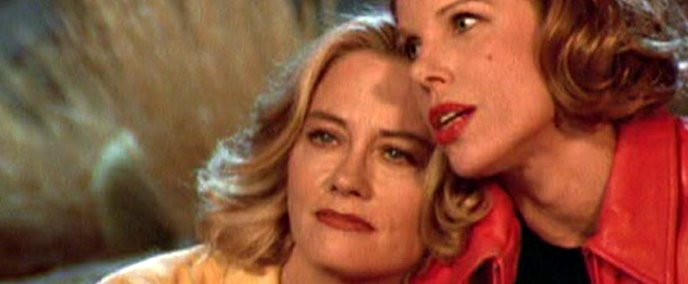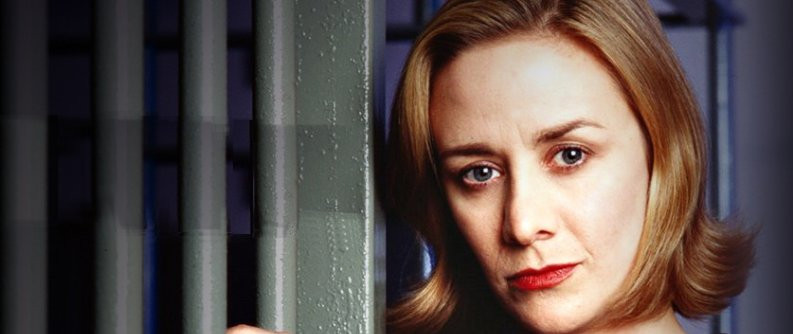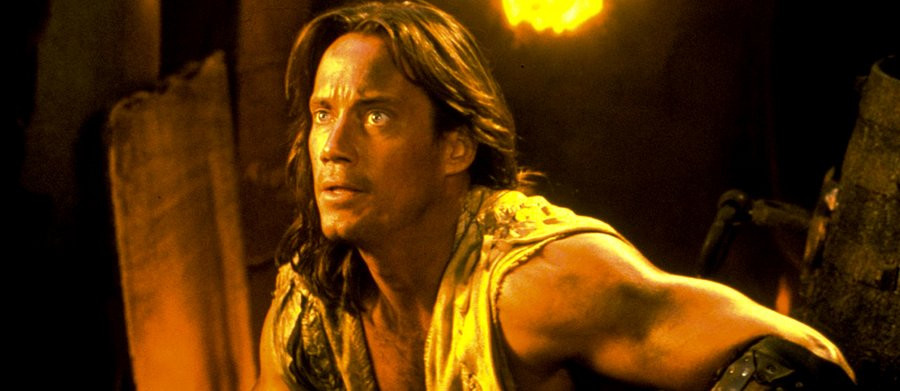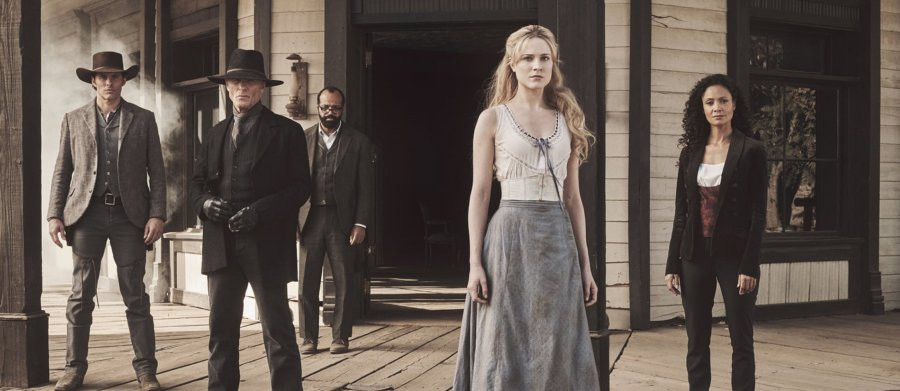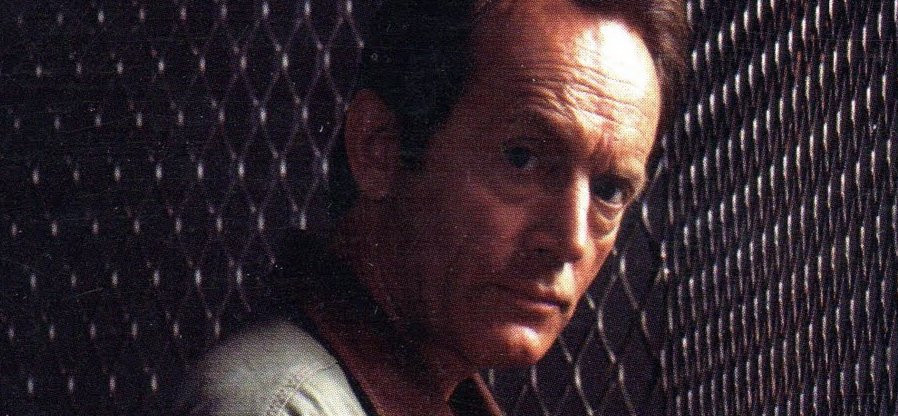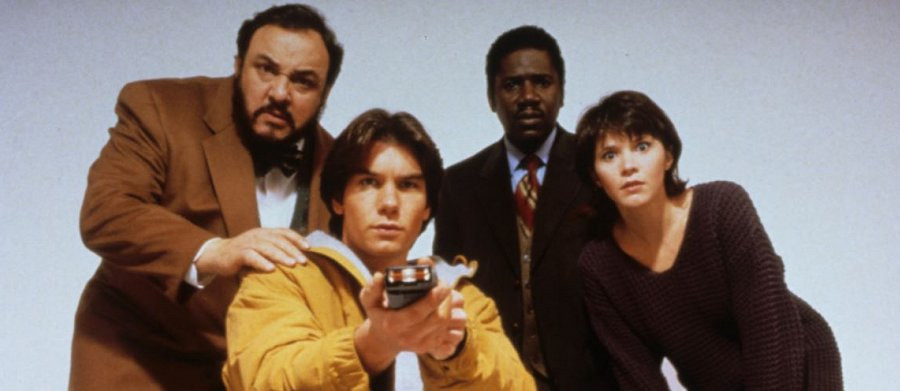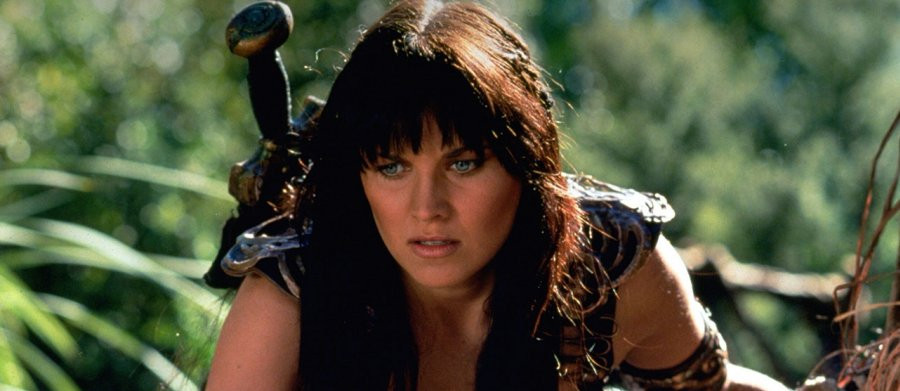
Xena: Warrior Princess
1995 - United StatesIt is perhaps difficult to remember, or for younger people to appreciate, just how influential Xena: Warrior Princess was when it was first shown. Xena was the role model for the television version of Buffy and for Beatrix "The Bride" Kiddo (with whom she shared her stunt double, Zoe Bell) and for the whole host of phenomenally efficient female fighters who have become almost compulsory in action adventure drama ever since.
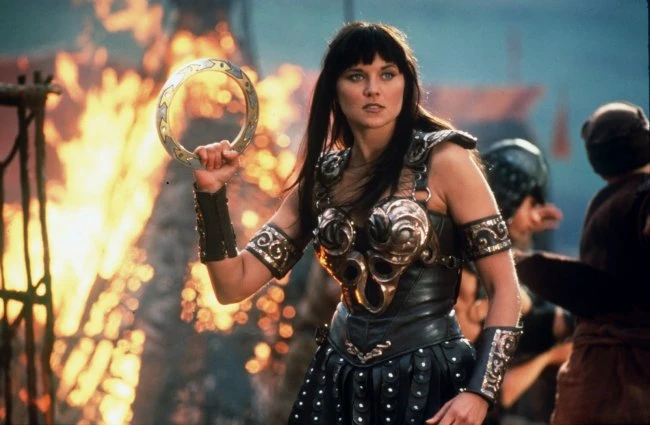
The newly discovered tenth planet of our solar system was given the temporary name Xena in 2005 - before it was renamed Eris and downgraded from being a full planet, along with Pluto, by the short-sighted technocrats at the International Astronomical Union - and there was a definite vogue around the turn of the Millennium for comparing women then in positions of power, like Condoleeza Rice, with the Warrior Princess.
The show remains significant in cultural history, not least because it has a good claim to be the first that was elevated to "cult status" by the internet. Since it was shown in the States initially in syndication rather than by a major network, 'Xena' was probably one of those programmes that more people knew than actually watched. Either way, those who watched it talked about it - online.
It generated everything from academic articles and highly literate critiques to early examples of "fan fiction." The studio made the very wise decision, unusual in those early days of the Web, not to be too zealous about enforcing copyright against obvious amateurs, giving the fans a real sense of ownership of the show.
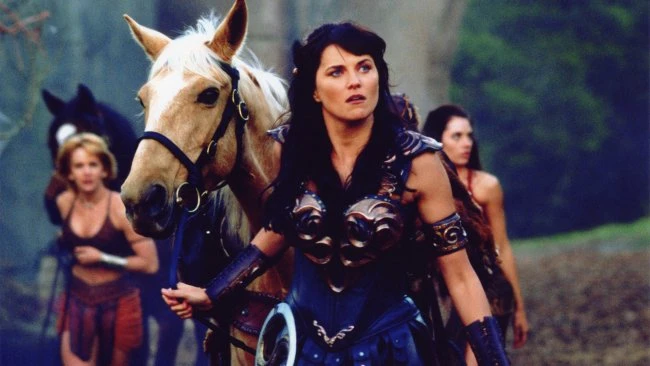
Even more important, it was the first successful mainstream action adventure drama to demonstrate a genuine feminist sensibility. There had been action shows with female leads before, Wonder Woman and the original Bionic Woman being the most high profile examples, but Xena was television's first credible characterisation of a military professional and leader of men who happened to be a woman.
This is ironic as the show was very much in the fantasy genre. A darker spin off from the relentlessly cheerful and positive Hercules: the Legendary Journeys, the basic premise was that Xena was a repentant warlord seeking to do good to make up for all the evil she had done.
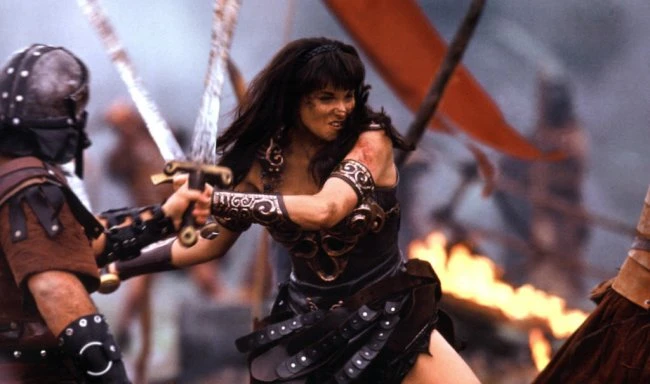
To that end, she wandered around the Ancient World, encountering - usually in a violent sense - various figures from Classical history and mythology. It should be noted that the word "history" is broadly defined in the "Xenaverse": Xena is present both at the Fall of Troy and the Assassination of Caligula - events which, more conventional scholars assure us, took place about a thousand years apart.
Over six seasons, the tone and quality of episodes varied enormously. There was at least one episode per season that was practically unwatchable. As a result, 'Xena' never exactly developed a reputation for high quality, intelligent drama. Yet it is unfair to write it off as cheap exploitation filler, because there were some other episodes which really were high quality and intelligent and genuinely dramatic. A format breaking musical episode, 'The Bitter Suite,' is particularly impressive.
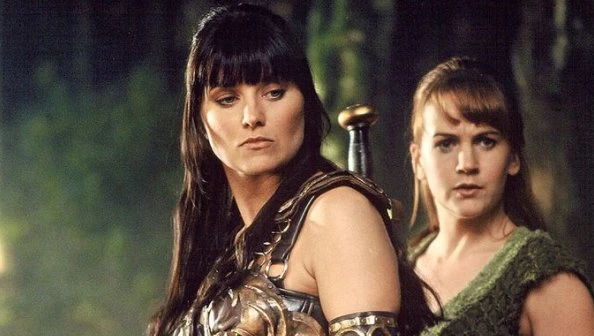
The character of Xena (played by Lucy Lawless, a previously obscure local actress in New Zealand, where the series was filmed) was initially an intriguing psychological study that raised interesting questions about redemption and human nature and the possibility of change. Her relationship with Gabrielle (Renee O'Connor), a peasant girl with literary aspirations who basically attached herself to the retired war criminal, was also the subject of much debate. Although many viewers had their own theories - spawning some lurid "fan fiction" - and in spite of the fact that Lawless is only three years older than O'Connor, the show is really about a substitute daughter growing up at the same time that her substitute mother is trying to mature a bit herself in other ways.
For all the fantasy elements around them, these were recognisable human beings with recognisable human issues. Watching the first season, one felt it could develop into a truly great show so long as they stayed that way - and in particular if the writers did not make the mistake of turning Xena from a fallible, vulnerable woman into some sort of invincible "superhero" with special powers and turning Gabrielle into Xena. Alas, that is exactly the mistake the producers made over subsequent seasons.
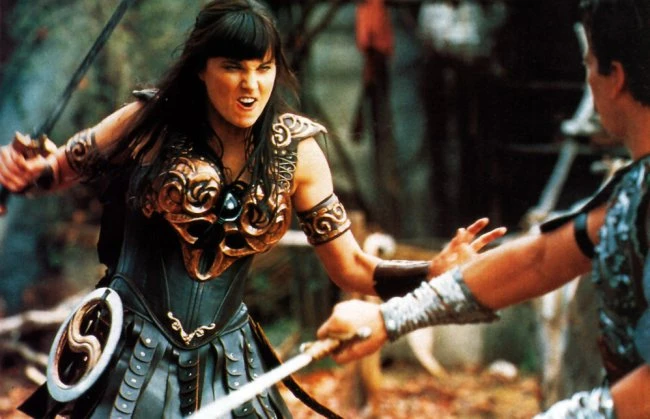
There was still much to enjoy. Lawless had a background in television comedy, so the lighter episodes were usually fun. She also turned out to be a first class dramatic actress in more substantial episodes such as 'The Price' and 'Is There A Doctor In The House?' Regrettably, she tended to pantomime when called upon to play "evil Xena" in flashback episodes, but that was probably more a symptom of the wrong direction the show had taken by then than an acting choice. From the start Lawless worked hard to take a potentially silly character seriously and she usually succeeded.
The best of the scripts were highly literate, especially those written by the first head writer, R J Stewart: it was sometimes not difficult to work out what books he had been reading recently. As with its stablemate, Hercules the Legendary Journeys, the show's production values and CGI - which were actually pretty impressive on a relatively small budget by the standards of the time - have not aged well, but the bright, colourful visual style, combined with a lot of location work exploiting the incredible scenery of New Zealand, still give it a definite Nineties charm.
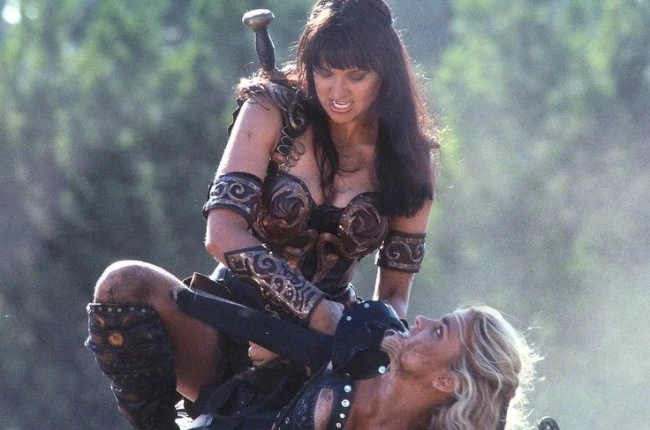
Ultimately it was a show of its time. That is the main reason why a planned "reboot" a couple of years ago came to nothing. There was also the problem that hard-core fans would accept no one but Lawless and O'Connor in the lead roles, but it was necessarily a young woman's show.
Yet the character of Xena remains intriguing, and it is not impossible that, a few years down the road, a new generation might want to explore the themes of change and redemption she represents, and someone might make the show she deserves.
Seen this show? How do you rate it?
Seen this show? How do you rate it?
Published on October 31st, 2019. Written by John Winterson Richards for Television Heaven.


